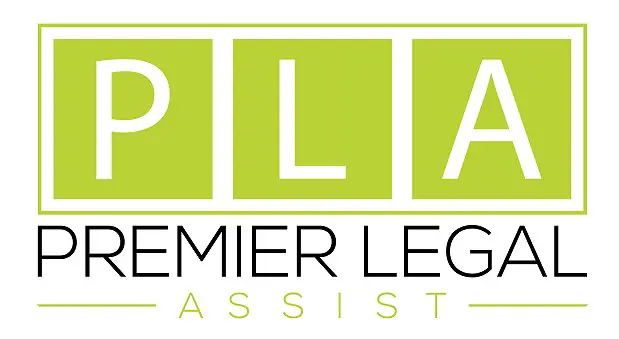Multiple Tenants to Take Legal Action Against Norwich City Council Over Disrepair
Norwich City Hall is facing 143 Housing Disrepair claims, seven of which are due to be heard at Court.
Norwich City Council’s failure to manage its 14,000 strong social housing stock has resulted in ongoing issues for tenants, such as damp and mould, resulting in a national report rating Norwich City Hall “poorly” compared to other Councils. Council cabinet members are being urged to address housing disrepair to ensure tenant safety and wellbeing.
The scale of the issue
The Council is facing 143 claims concerning disrepair in its social housing properties, seven of which are due to be heard at Court. This volume of legal action highlights a growing concern among tenants regarding the condition of their homes.
Despite one cabinet member ensuring that the Council was making “slow progress” to improve the service and housing issues tenants faced, many felt this there was no other option but to take their complaints to the Housing Ombudsman (HOS) and even Court. The HOS is a government body that investigates housing complaints between tenants and landlords with the aim of improving residents’ lives and landlords’ services.
The Social Housing (Regulation) Act
Housing disrepair can have serious health and wellbeing consequences for tenants if landlords ignore their complaints, whether they rent from a private landlord, a housing association or from a local authority or council.
The Social Housing (Regulation) Act, passed in 2023, brought about changes for how social housing is managed by Housing Associations and Local Authorities. The Act introduced increased regulations on social landlords designed to protect tenants from serious harm due to disrepair and hazards in their homes such as:
• Mould, fungus or damp
• Leaks, flooding or water damage
• Cracks and structural damage
• Defective roofing or gutters
• Defective brickwork
• Insect infestations
• Faulty plumbing, heating and broken boilers
• Vermin infestations (rats/mice)
• Electrical faults
• Broken doors, windows, and locks
The Act, in part, is a response to previous negligence which has resulted in tragic circumstances in social housing properties including the 2017 Grenfell Tower fire and the death of Awaab Ishak, aged two, who died in 2020 due to severe mould exposure.
As part of the Social Housing (Regulation) Act, Norwich City Council must adhere to gathering Tenant Satisfaction Measures and produce a Complaints Performance and Service Improvement Report under the HOS‘s Complaint Handling Code. A report submitted on 30th June 2024 highlighted issues with handling complaints, being compliant in only 63 out of 72 areas.
Housing Ombudsman’s report
According to a 2024 HOS report addressing a complaint against Norwich City Council, evidence of maladministration was highlighted when handling repairs, reports of damp and mould and failure of handling complaints. The resident told the HOS the Council’s failure to address her complaints had resulted in housing disrepair that had negatively affected her and her child’s health. Hazards to health detailed in the report included:
- Damp and mould
- Ceilings in need of repair
- Failure to carry out an asbestos survey
Tenant safety – Awaab’s Law
Awaab’s Law was named after Awaab Ishak, a two-year-old who died from mould exposure in 2020, and forms part of the Social Housing (Regulation) Act 2023 introduced in response to Awaab’s preventable death and aims to protect other social housing tenants from unsafe living conditions. The new law aims to ensure that emergency repairs are actioned more quickly, and that social housing landlords are held accountable for disrepair issues such as damp and mould.
Although Awaab’s law has not fully come into effect yet, it will be gradually phased in over the next couple of years. The following dates are worth noting:
27th October 2025:
- Landlords will need to investigate a mould or damp report within 10 working days to determine if there is a hazard. A written summary of the investigation findings must be provided within three days of the investigation concluding.
- If serious mould or damp is found, the social landlord must make the property safe within five working days.
- Landlords will need to action any emergency repairs within 24 hours.
2026: Other serious hazards will be added to social landlords’ actionable requirements, such as excess cold and heat, structural collapse, hygiene, food safety and explosions.
2027: The law will be extended to include all remaining hazards defined by the Housing Health and Safety Rating System (HHSRS), excluding overcrowding.
Premier Legal Assist can help
Premier Legal Assist works with a panel of specialist solicitors who have extensive experience in housing disrepair law in cases involving a wide range of Housing Associations and Local Authorities across the UK.
Our panel of solicitors are dedicated to our clients, ensuring the best possible outcome is achieved and support is provided every step of the way.
To find out if you may be eligible to make a housing disrepair claim, get in touch by completing our contact form.
Other Insights
Important Information
Premier Legal Assist is a claims management company. You do not need to use a claims management company to make your complaint, you can complain to the organisation you are complaining about directly. If the issue is not resolved, you can refer it to the relevant independent Ombudsman service for free.





